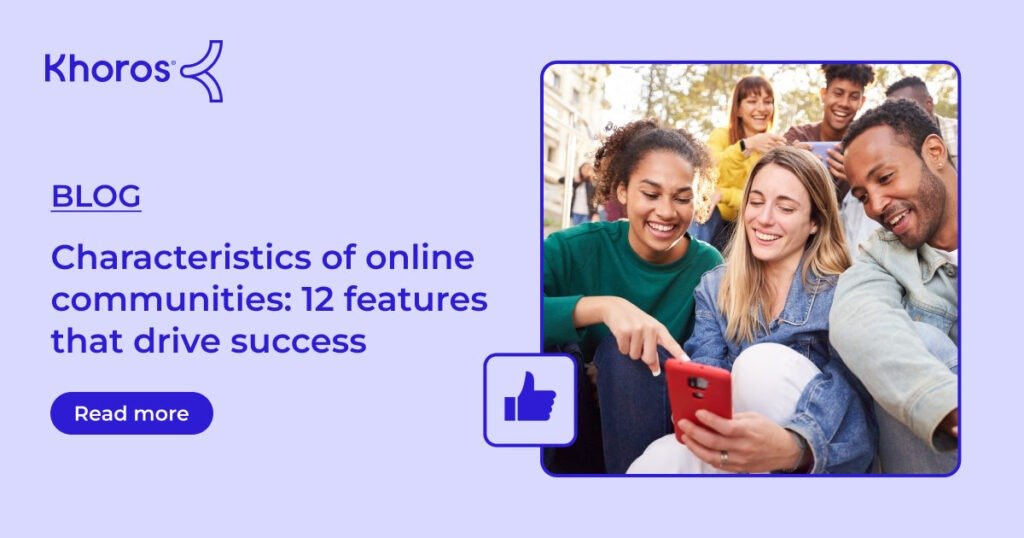
Online community platforms enable people to communicate asynchronously in meaningful ways. The best ones can even be customized so as to fit seamlessly into your company’s workflow.
Traditional discussion forums serve as digital town squares, where individuals gather to discuss common interests and seek advice. Examples of such communities are subreddits for astronomy fans and video game aficionados as well as professional networks like Behance and GitHub.
Branded Communities
Branded communities are designed to help customers explore topics around shared interests – with brands playing an active role in driving conversations and providing customers with answers they need. For example, music streaming platforms such as Spotify offer forums where customers can discuss their favorite artists or share playlists they enjoy; such community engagement tools help foster dialogue about products within a company and use this data to further optimize products and services offered.
Brand communities can be an effective tool for brands looking to bring their values alive in consumers, enhance customer satisfaction and build brand loyalty. But as with any marketing effort, brand communities require deep insight into what resonates with audiences as well as an investment in developing an efficient customer support function to guarantee they deliver what was promised.
Brands that fail to prioritize community could risk losing their audiences. Our research revealed that consumers want brands that invest in providing an authentic community experience; they quickly lose patience with those that pay lip service but cannot or unwillingly commit to making it work. Future-thinking businesses understand that branded communities can serve more than just as channels to connect with customers; they’re powerful drivers of customer satisfaction, revenue growth and business expansion.
Informal Communities
People working together within an informal organization enjoy a strong sense of belonging. Unlike a formal organization, relationships within this type of group don’t rely on rank or functions but on personal attitudes and prejudices instead. An informal organization offers many advantages including upholding cultural values while offering social satisfaction; however it must also be remembered that such associations don’t just appear out of thin air – contribution must be given from both members in order to reap its rewards.
Informal settlements, commonly referred to as slums, are a key feature of city life in many cities. Offering affordable housing for low-income residents who cannot afford formal options and supporting strong community ties and support networks. Unfortunately, however, due to limited access to infrastructure and services such as clean piped water, drainage, sanitation services and solid waste collection systems as well as healthcare, informal settlement residents face increased risks of illness and injury than their city-dwelling peers.
City leaders seeking to enhance living conditions in informal settlements must adopt an integrated and holistic approach that takes into account both urban-wide and slum-specific needs, including inclusive planning, integrated delivery and prioritizing improved sanitation and water services. A key part of this strategy is engaging the informal community itself via participatory processes which foster transparency.
Insight Communities
Online insight communities allow you to gather both qualitative and quantitative data from research participants quickly. They can range from large long-term communities, down to targeted short-term projects with just one participant or more targeted for each project. A few types of research conducted through an insight community include focus groups, idea generation sessions, digital diaries or consumer blogs as well as real time chats, instant voting polls, purchase journey tracking or multi-stage discussions.
An essential component of creating a successful insight community is creating short personas for each target customer group. This helps determine recruitment messages, sources and engagement programs tailored specifically to them. Furthermore, top insight community platforms also allow you to reskin the look and feel of communities for different target customer segments.
Communities of insight can also provide an excellent source of ideas for product development. GiffGaff relies heavily on their community as a source of new product ideas and services development.
Insight communities provide organizations with an effective way to incorporate customer voices into decision making throughout an organization. Decisions informed by customer feedback tend to give companies a competitive advantage, and online communities provide businesses with a means for rapidly, efficiently, and cost-effectively developing, testing and implementing changes more rapidly than traditional methods such as face to face focus groups or surveys.
Community Management
Community management platforms are tools designed to facilitate the growth and engagement of online communities. They facilitate interactions and collaboration among members while streamlining interactions. Community management platforms can be especially beneficial to businesses that host communities surrounding their products, business model or assets – these typically have dedicated teams ensuring user-generated content meets site requirements – such as Vanilla Forums or Bettermode as well as contribution platforms like GoFundMe or Airbnb’s community spaces.
Community platforms are an excellent way to provide customers with additional support and problem-solving resources. They can supplement existing customer service channels, improving overall product satisfaction. Furthermore, these community platforms can increase brand loyalty while driving brand advocacy and retention.
Community management is a burgeoning field that presents businesses with an excellent opportunity to strengthen customer loyalty and establish genuine connections with their target audiences. By creating an environment for users to interact, share feedback and interact with one another, brands can form stronger customer bonds which in turn drive more conversions and sales. Leveraging customer feedback also enables companies to gain invaluable insight into user needs, pain points, preferences and preferences that they can use to further refine products as well as refine marketing strategies; setting them apart from their competition.


